8th May 2016
By Tim Bryant
Guest writer for Wake Up World
“The darkest thing about Africa has always been our ignorance of it.” – George Kimble
Africa: A Forgotten Continent
What does the world really know about Africa? In the West, if you were to turn on the T.V., you would be hard pressed to find any news coverage regarding Africa other than starving children, political chaos, and exotic wild life. Despite being the second largest continent with a population of almost a billion people, Africa is usually relegated down to the bottom of the barrel when it comes to social and geopolitical importance on the international stage. What is perplexing though, is how Africa can be the most resource rich continent on the planet, yet also be the poorest continent on the planet. In reality, Africa should be prospering, and the envy of the rest of the world. Something isn’t adding up and its time people started to figure out why.
The narrative concocted by the media in the West is that Africa’s continued third world status is largely a product of its own creation, whether that be because of political corruption, ethnic conflict, poverty, or a complete lack of education. The narrative goes even deeper by implanting a belief system in people that Africa is this primitive continent with an unsophisticated culture compared to the rest of the world. This feeds into the idea that it is the moral duty of the philanthropic souls in the Western world to intervene and bring this better, more “civilized” culture to the people of Africa. It would be naïve at this point to think that the major powers of the world view Africa as any type of equal able to compete on the same playing field as them, both intellectually and culturally. It’s always the West, which is portrayed as the superior society in virtually all aspects of life.
Despite the misguided belief systems that persist, it’s time for all that to change. Often overlooked by the alternative media, Africa is very much an important thread of knowledge in the global conscious awakening happening all over the world. With the world becoming increasingly interconnected like never before, it’s vital, to both African success and global peace, that people of the world come to understand the root problems in Africa’s struggle to develop. What people will soon find out is that the problems of Africa are highly interrelated to the very same problems prevalent all over the world. In fact, most people of the world have the very same enemies preying upon them, making it all the more crucial that they awaken to this realization and come together as a united front. In many ways, changing Africa goes a long way in changing the entire world.
The Trans-Atlantic Slave Trade
“Songs we would never hear! Histories we would never know! Art we would never see! Because the Europeans had the capacity to destroy and didn’t have the moral restraint not to.” – Maulana Karenga
Africa has an extremely rich history that is incredibly diverse and goes back much longer than the implementation of the Trans-Atlantic Slave Trade, but for all intents and purposes the Atlantic Slave Trade might be the easiest place to start when aiming to understand Africa’s current state of affairs. Slavery has existed in many locations, forms, and time periods throughout the world, but the Trans-Atlantic Slave Trade, which occurred from around the middle of 15th century to the end of the 19th century, is one of the most notorious and well-known forms of slavery in modern history. Its effects are still lingering today, especially amongst those who were displaced from their native lands.
In all, it’s estimated that around 10-15 million Africans (likely higher if you count those who died in transit) were brought to the America’s by European ships during its operation, which includes North, Central, and South America. Though it was a clear factor, the purpose of the Atlantic Slave Trade was not solely racist hatred like many people think, but instead was economically motivated, centered around the massive demand for cheap labor needed to cultivate the crops of the newly settled lands in the America’s by European imperialists. This mostly revolved around the production of tobacco, sugar cane and cotton, which were all very labor-intensive processes at that time. Though the Spanish had enslaved many American natives when they colonized it, there was still a huge shortfall in labor; which inevitably turned them towards Africa to provide.
To pry the Africans away for the slave trade, the Europeans showed up to African shores offering manufactured goods, weapons, and rum to their kings/merchants in exchange for slaves. The leaders of Africa who sold these people into slavery viewed them not as their own people, but as criminals, debtors, or prisoners of war. Effectively, getting sold into slavery was punishment for the crimes one had committed. Due to the superiority of European goods and weapons, the African tribes that sold slaves often become enriched and more powerful compared to rival tribes that didn’t partake in it. Because of massive European demand, tribes competed against each other to provide slaves, inevitably leading to increased war and conflict, as tribes attacked each other in order to capture rival members and sell them off. This too only escalated, as African kingdoms soon became dependent upon European firearms to protect themselves against rival attacks, only furthering the need to sell more slaves in order to buy firearms for protection. A negative feedback loop had arisen, much to the dismay of Africa’s interests.
It is well documented the effects that the slave trade has had on those Africans who were shipped across sea as slaves. Many didn’t even make it to the Americas, often dying in transit, while those that did were treated as a sub-human species. Even into today, the slave trade has had huge psychological, physical, and economic effects on those families uprooted from their homes and forced into slavery. Not only can it be seen in the clear cycle of poverty that many minority communities find themselves in today, but it filled the world with a disgusting form of racism that had not yet existed to that magnitude before. Not only did blacks resent whites for claiming them as property and using them for forced labor, but whites developed this sense of moral superiority as if they were the superior race and everyone else needed them to lead civilization in the right direction. Racism on both sides traces many of its roots back to the slave trade.
It’s important to note that it was mostly élite interests that benefited from slavery, even amongst the whites, because the large majority of whites had no input in the development of the slave trade nor did they have enough money to ever own slaves. Whites were often just fed propaganda on slavery by the elites, and therefore became brainwashed victims of the ideological racism rather than developing this ideological hatred on their own. This is the same kind of programming we see today, so it shouldn’t be too surprising.
However, what is not often discussed is the effect the Trans-Atlantic Slave Trade had on Africa. One major consequence was that the African economies had become increasingly dependent on the slave trade, so when the Atlantic Slave Trade eventually ended in the late 19th century, African economies collapsed. Another major consequence was the deep internal conflicts that manifested as a result of the competition to provide Europeans with slaves. Families were broken up, neighboring tribes became fierce competitors and enemies, and leadership structures became untrustworthy and broken. Couple this with the fact that a large number of its male population had been displaced due to slavery, and you have a continent that is easy prey for a new form of slavery by the Europeans called Colonialism.
Colonization and the Scramble for Africa
“I contend that we are the first race in the world, and that the more of the world we inhabit the better it is for the human race…” – Cecil Rhodes
Right around the beginning of the 19th century, Europe was experiencing a boom in manufacturing, in what many people now refer to as the Industrial Revolution. Europe became the “workshop of the world,” as mass industrial production and international trade become possible like never before, effectively changing the entire global economic system in the process.
As a result, two things happened: there was a large demand for massive quantities of raw materials (copper, cotton, rubber, palm oil, tin) to power the revolution, and there was a surge in the demand for luxury goods (cocoa, diamonds, tea) in Europe, as the average income of the population rose extensively during this time. After years of experience inside of Africa, the Europeans not only knew that Africa was extremely resource rich, but they also had the strategic advantage of already controlling most of their seaports. There was tons of easy money to be made in Africa, supplemented with the fact that they had far more advanced weaponry than the Africans, making the conquest of Africa far easier and quicker than that of an equal battle. Though the Africans fought bravely and put up some resistance, there was little the Africans could do once the Europeans came in and took the offensive.
At the Berlin Conference of 1884-1885, the Act of Berlin was signed, which formally outlawed slavery in Europe and allowed free trade with Africa. To many on the international stage, it was seen as a sign of great progress, but unbeknownst to the Africans, there were more agreements going on under the table that would have grave consequences for Africa. At the very same conference, the European powers had quietly decided to split up the rights to African land amongst each other in order to allow further expansion of their empires and to solve inner quarrels brewing amongst the Europeans over influence in the region. Essentially, Great Britain, Spain, Germany, Italy, France, Belgium, and Portugal, laid claim to different parts of Africa, even though it was not their land to take. In many ways, they felt compelled to do this in order to appear preeminent on the international stage, as well as the primary objective of having enough cheap resources to enjoy the great economic wealth that came with industrialization. There were also social factors that came into play because the new capitalist industries couldn’t absorb everyone into this new system. Instead of altering the system, Europe looked to ship the “surplus population” to Africa and start settler colonies there. All in all, colonization was pure exploitation of Africa by European powers, especially economically.
Although Europeans were already working behind the scenes to colonize Africa, the agreement at the Berlin Conference had officially kicked off the scramble for Africa, effectively reshaping the continent like never before. In the span of just 20 years from the Act of Berlin, 90% of Africa was brought under European occupation, with most of the rest to follow. Though some people believe Ethiopia and Liberia to be the only countries in Africa never colonized, this doesn’t appear to be completely true because they were both occupied by a foreign country for some period of time. It just so happens that Liberia gained independence before the Scramble for Africa began and Ethiopia was briefly colonized by Italy after the scramble for Africa had ended.
According to Richard Dowden of the Royal African Society, “they carved up between six to ten thousand political units in Africa” into what equates to “geographical madness.” Essentially, they just drew lines on a map, many of which had not been there before. To the surprise of no one, this completely threw off the current way of life, creating an intertangled quagmire of different ethnic and cultural groups. This would only add to the chaos already brewing amongst the competing African tribes during the times of slavery. In fact, historically, Africa has always been highly diverse with thousand of different languages and ethnic groups within it. This is contrary to the commonly held belief that all Africans are the same. In the end, this division and animosity amongst the people of Africa only helped the Europeans keep the Africans divided and conquered, making rule over them far easier than if they were to unite.
The Europeans sold this, not only to the world, but themselves, by claiming they were bringing “civilization” and Christianity to the “primitive” people of Africa. They justified this further by building infrastructure throughout Africa as their way of modernizing it to fit the times. While this did help Africa to some degree, the reality is that it was accomplished mostly through forced labor and taxation for the primary benefit of European business routes. While some people, especially at the very top, were extremely racist and knew full well of the devastation they were inflicting upon Africa, countless Europeans actually thought they were humanitarians doing the right thing. Many truly thought they were helping Africa by colonizing them. Unfortunately, most average Europeans were simply blinded by both propaganda and this very discreet form of racism and moral superiority that had infiltrated the minds of the Europeans during the times of slavery. They truly believed they possessed this “better” way of life; and so they felt they were doing the right thing by bringing their “civilized” culture to those who had not yet achieved it.
It’s also important to note that the development of colonization and the primary beneficiaries of colonization were again the very same types of elite interests. Most normal people were just pawns in the game with little to say in the matter. They were just as conned, but were fortunate enough not to get the short end of the stick like the Africans did.
The French in particular, adopted heavy cultural assimilation of the Africans. They felt proud for doing so as well, viewing themselves highly for exposing Africans to their “sophisticated” culture. In many French colonies, Africans actually gained status the more French they become, effectively rewarding them for adopting the French way of life and punishing them for participating in their native customs. Others colonizers more brutal and focused solely on extraction of resources, like King Leopold of Belgium, who literally laid personal claim to the entire country of Congo, making an ungodly fortune in the process. He was a notoriously brutal dictator, known for chopping off people’s hands for not meeting their rubber quota for the day. It is estimated that the population halved during his twenty-year rule, which in the proper context is considered none other than genocide.
For the most part, the European powers would implement a classic divide and conquer strategy, where they would corrupt the leaders of local tribes and use them as middlemen to rule over the people. They went even further with this by controlling multiple leaders from different sides of the conflicts, effectively playing different ethnic groups off each other in order to manufacture chaos and keep them from uniting in any sort of rebellion against European power. One way they did this was by managing different territories and ethnic groups in different ways, with some tribes receiving better treatment than others. For example, in Western Nigeria the proxy leaders cooperated more with the West, therefore schools and infrastructure were built up, giving rise to a small political élite in the area. On the other hand, in northern Nigeria the local leaders didn’t take as kindly to colonial rule, resulting in a less developed and poorly educated region. These manufactured differences under colonialism in social status, ethnicity, and leadership ethics would come back and haunt Africa during what was supposed to be the crowning achievement of the continent; national independence of its countries.
Source Article from http://wakeup-world.com/2016/05/08/the-hidden-truths-of-africa-neocolonialism-and-the-modern-age-of-slavery/
Related posts:
Views: 0
 RSS Feed
RSS Feed

















 May 7th, 2016
May 7th, 2016  Awake Goy
Awake Goy 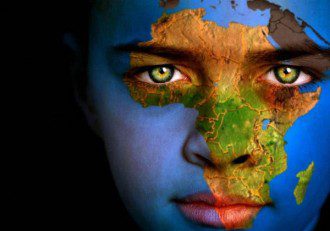
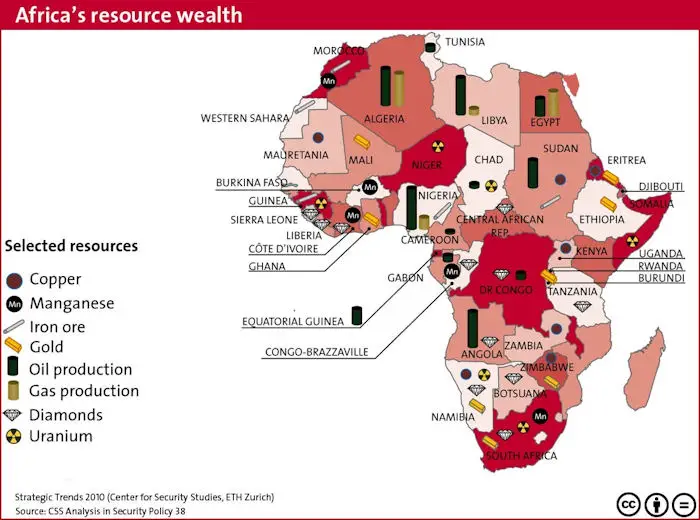
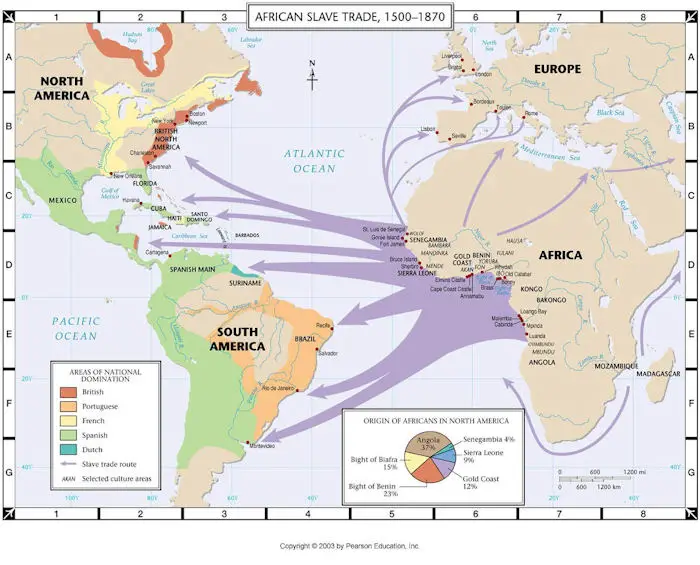
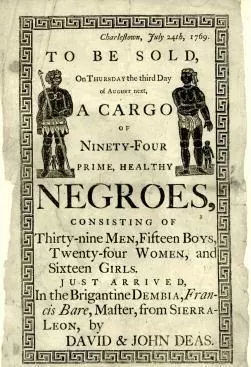
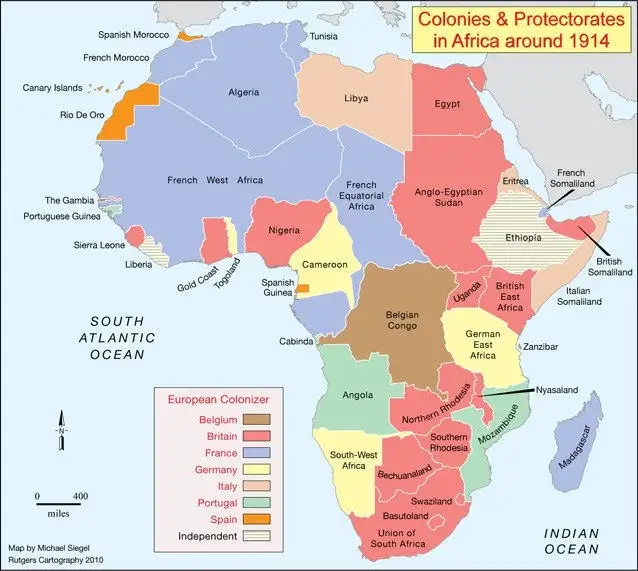
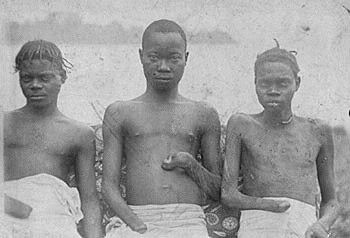
 Posted in
Posted in  Tags:
Tags: 
















